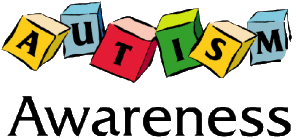Helping to Understand Autism

Helping to understand Autism – what parents need to know.
Autism spectrum disorder (ASD) is a neurodevelopmental disorder with symptoms usually recognized in early childhood (before 24 months), though formal diagnosis may not occur until preschool age or later. In March 2014, the CDC reported the rate of ASD to be approximately 1 in 68 children.
ASD is a lifelong condition and affects multiple areas of life such as education, career, and family. Characteristics of ASD are in multiple areas and may include the following:
- Cognitive: Strengths are often seen in non-verbal tasks and memorization while difficulties are often in areas of verbal problem-solving
- Social Skills: Commonly, children with ASD have difficulties with social norms and rules such as taking turns. They may also struggle with understanding emotional expressions and being able to understand someone else’s perspective (put themselves in someone else’s shoes)
- Communication: Children with ASD often struggle with verbal communication; both understanding others and expressing themselves
- Organization: May have difficulty being a “self-starter” and following through with tasks, going from one activity to another, or being flexible with schedules/time
The CDC outlines early signs of ASD which may include the following:
- Not respond to their name by 12 months of age
- Not point at objects to show interest (point at an airplane flying over) by 14 months
- Not play “pretend” games (pretend to “feed” a doll) by 18 months
- Avoid eye contact and want to be alone
- Have trouble understanding other people’s feelings or talking about their own feelings
- Have delayed speech and language skills
- Repeat words or phrases over and over (echolalia)
- Give unrelated answers to questions
- Get upset by minor changes
- Have obsessive interests
- Flap their hands, rock their body, or spin in circles
- Have unusual reactions to the way things sound, smell, taste, look, or feel
If you are concerned about your child’s development, speak with a medical professional. You can also contact your local school district and ask about options for free early intervention services (before age 3) or school-age support services (ages 3-22).
Diagnosing a child with ASD is an extensive process based on behaviors, not medical tests. An evaluation may include multiple professionals in order to assess language, behavior, cognition, and social skill development.
What to Tell Your Dentist
Children with ASD often have sensory sensitivities that may be related to noise, texture, taste, temperature, lighting, pressure, or others. These sensitivities usually affect the child’s diet and food preferences which may in turn affect their oral health. In addition, a visit to the dentist involves a relatively unfamiliar environment with sensory experiences the child is not routinely exposed to. Be sure to tell your dentist if you child has any of the following sensitivities:
- noise (volume, pitch, etc)
- taste (sweet, sour, bitter, salty)
- touch (pressure, fabrics, etc)
- visual (lights, TVs)
- smells (specific cleaners, soaps, etc)
Helping to understand Autism means you can support your child through his/her dental visits in the best possible way.
When you schedule your child’s appointment with a dentist, be as specific as possible with any information that might be helpful in planning a successful appointment.
We at Caring Tree Children’s Dentistry are always looking for ways to improve your experience with us. Check back soon for a sensory questionnaire for your child’s next dental visit.
We want to see ALL children by their first birthday to aid in prevention and help your child be as comfortable as possible with their regular visits to the dentist.
Contributed by Miranda Kucera, PhD, school psychologist in Placer County
References/Resources
Autism Spectrum Disorders: Identification and Diagnosis
Early Signs of Autism Video Tutorial from the Kennedy Krieger Institute













